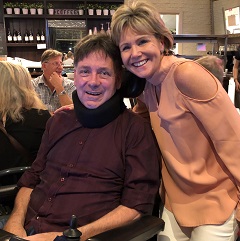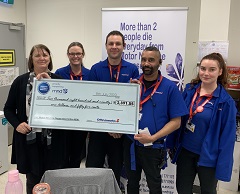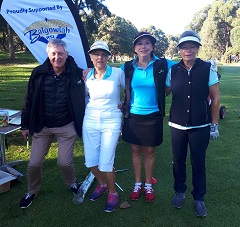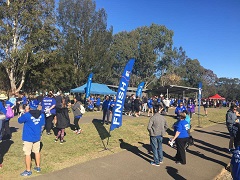Help Can MND
The 'Help Can MND' trivia and auction night fundraiser was recently held in Bathurst in support of MND. A donation from the event of $10,000 was made to MND NSW to be used for much needed equipment for our members with MND. A big thank you to everyone who organised and supported this event. Pictured from left are Anthony Campbell and Janine Graham.





